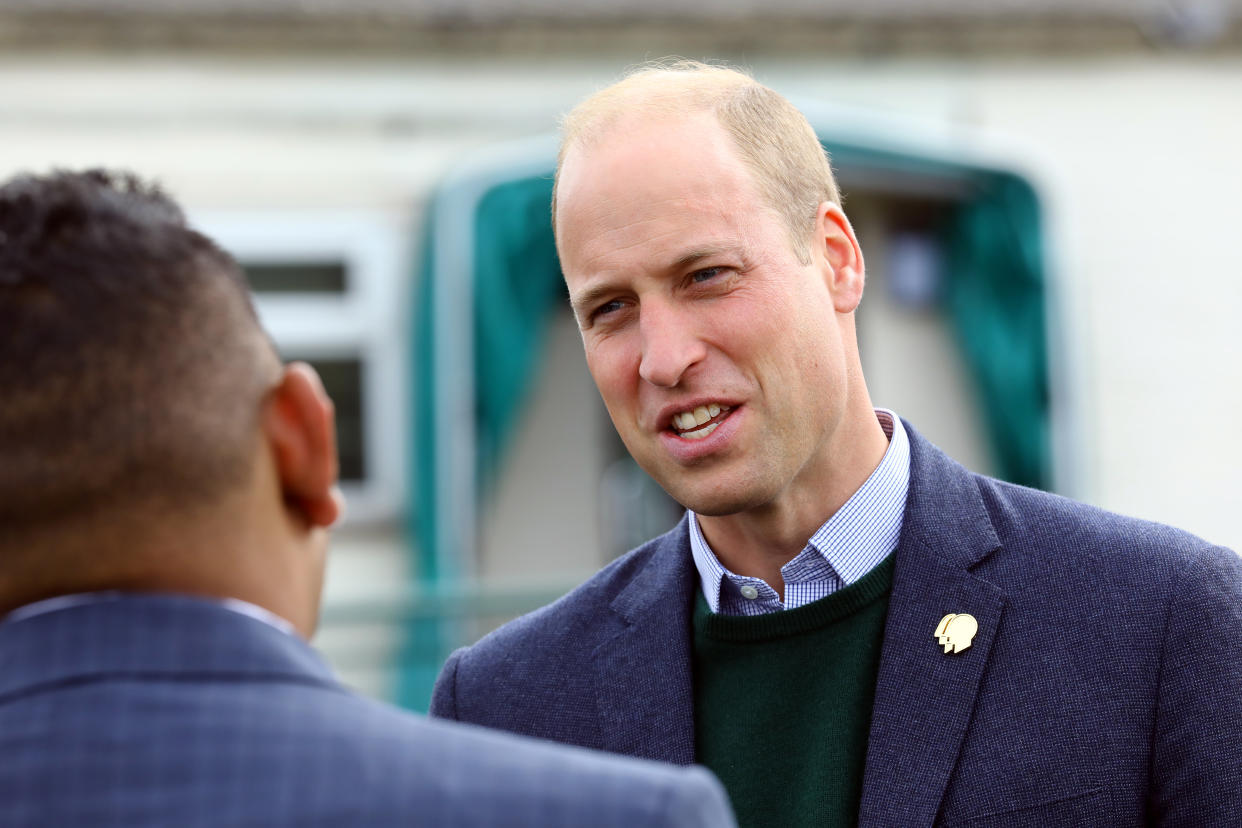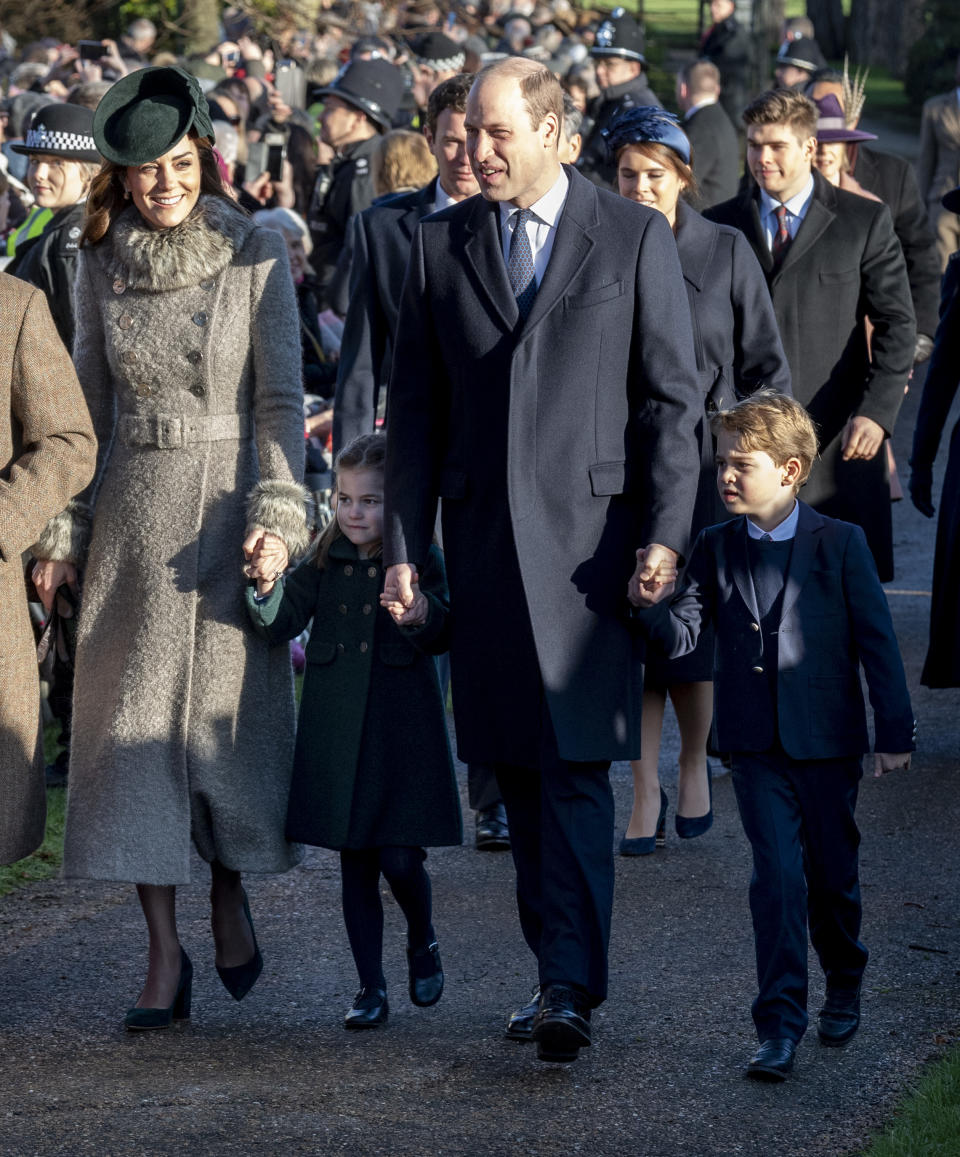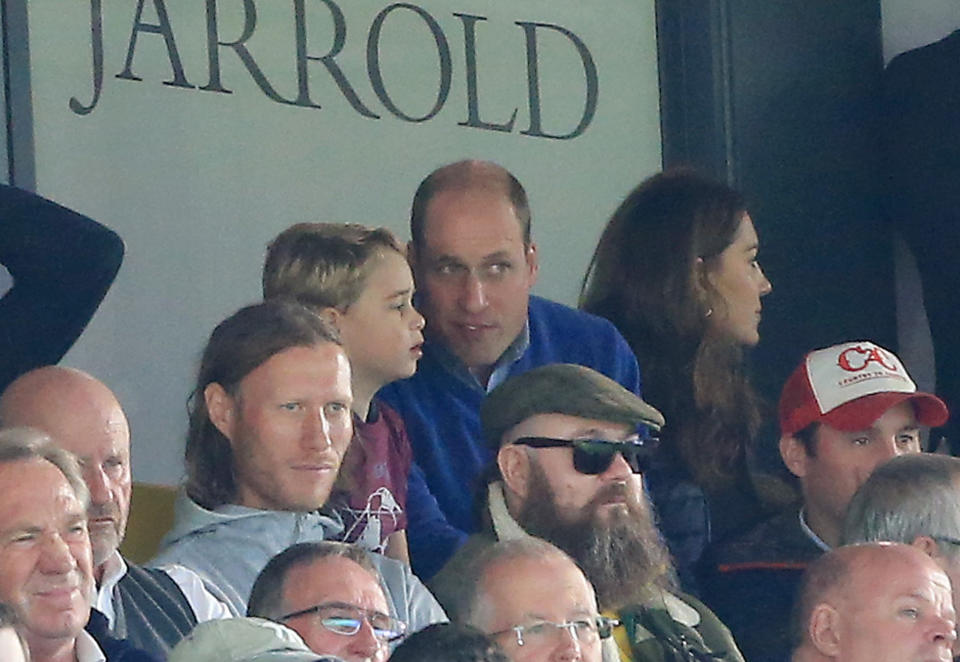Prince William talks homeschooling: 'You worry how little you know when you can't do Maths'

Prince William has joked about finding it hard to do his children’s Maths work as he homeschools them during lockdown, as he spoke to footballers and football fans in a new documentary.
Father-of-three William was speaking to a group of men he had followed from around the UK including former footballer Marvin Sordell and goalkeeper Joe Hart.
But with the country in lockdown, the final part of his documentary saw them all joining a zoom call to talk about how they were coping during the pandemic.
William said: “Homeschooling’s fun, isn’t it?
“You start worrying about how little you actually know from your school days, when you can’t do the Maths questions at home.”
Laughing at another father’s trouble with phonics, he added: “The challenges of lockdown.”
And responding to one who had started plenty of DIY jobs, the Duke of Cambridge said: “Isn’t it funny how many jobs we put off round the house until we had to go into lockdown and then all of sudden it’s like ‘oh yeah, I’ll do that, that’s not a problem’.”

William, 37, has long campaigned on mental health, but in recent years has used football as a way to encourage men in particular to speak more openly about struggles. Suicide remains the most common cause of death for men aged 20-49 in the UK.
The prince said he was worried about the impact of the pandemic on the health of the nation.
Closing the programme, he urged people to “have that first conversation” as they deal with their mental health.
He said: “That first conversation can open so many doors and provide so much relief - it’s hard to overestimate that.
“There are plenty of places to go, the mental health sector is doing a fantastic job in maintaining and building support for people around the country.
“We are all going to struggle in dealing with the anxiety, the isolation, the uncertainty, job losses, it’s going to affect everyone in different ways.
“That does worry me a lot and we have to be mindful of looking after all of society going forwards.”

For his documentary, William travelled around the country, speaking to footballers at all levels of the game and offering his own thoughts and experiences of mental health.
One of those was Marvin Sordell, who retired from professional football at the age of 28, citing mental health reasons, spoke to the duke about his career - saying he was dropped from squads because of the problems he was having.
Sordell, now 29, spoke about growing up without a father and how that affected him during the arrival of his first daughter.
The duke said: “I can relate to what you say, having children is the biggest life-changing moment, it really is.
"And I agree with you, I think when you've been through something traumatic in life – and that is like you say your dad not being around, my mother dying when I was younger – your emotions come back in leaps and bounds because it's a very different phase of life.”
He said he and Kate support each other and go through things together when that happens.
He told Sordell: “Your dad would be very proud of you. You’re going to be a great dad.”
Sordell replied: “Your mum would have been proud of you.”
We're really proud to be a part of ‘Football, Prince William and our Mental Health’ – a brand new @BBCOne documentary following our #HeadsUp campaign with @KensingtonRoyal and @heads_together
📺 Watch it tonight on BBC and @BBCIplayer at 20:05 pic.twitter.com/gqS3sWizkt— CALM (@theCALMzone) May 28, 2020
William also visited Sands United, a football team made up of fathers who have lost children.
He said: “A lot of guys don’t know what they’re feeling, and understanding what you’re thinking is part of the journey.
“As Brits, we’re not particularly good at dealing with emotions, it can get a bit awkward, and with men, we don’t know what to say when something is sad. It’s only people who have been through something difficult who know what to ask.”
Read more: Prince William warns calling NHS staff heroes could harm their mental health
Setting his campaign an ambitious target, the duke said he wants to see every team, from grassroots to premier league, having systems in place to deal with player mental health.
Joe Hart, England’s second most-capped goalkeeper, spoke on the programme about reaching out for professional support.
He said: “If someone questions you, that doesn’t mean you have to go aggressive, or stand-off, I opened up a line of communication, asked for help... and won the league again.”
The 33-year-old, who is on the bench at Burnley, said now could be a dark time for him - but it’s not.
The duke and Hart spoke frankly about support teams could offer players around dealing with media and fan attention, form dip and eventually leaving the game.
Read more: Prince William says poor eyesight helped his stage fright - because faces became a blur
The duke said: “We have all got to juggle a lot of things, as Joe pointed out, if we can deal with these things earlier in the process, we stand a better chance of fixing it.
“Rather than something falling by the wayside and it spiralling out of control.”
The duke also worked with Aston Villa’s Tyrone Mings and Tottenham Hotspurs Harry Winks on the show.
Mings told the grassroots players he pays a psychiatrist for his mental health support, saying “no one cares” because he would be judged by his performance on the pitch.
The duke met Matthew, known as Jamo, from Gorseinon, in Swansea who spoke to him about anxiety, which came on suddenly for him.
Jamo told the duke he had a panic attack on the way to meet him, and turned the tables on the duke, asking if he had faced anxiety in his work.
The duke said: “My eyesight started to tail off a little bit as I got older, and I didn’t used to wear contacts when I was working, so when I gave speeches I couldn’t see anyone’s face.
“And it helps, because it’s just a blur of faces and because you can’t see anyone looking at you – I can see enough to read the paper and stuff like that – but I couldn’t actually see the whole room. And actually that really helped with my anxiety.”
William suggested there might be a stigma around mental health because of the two World Wars - saying people felt they needed to internalise their problems.
Arguing it’s no longer relevant to today’s world, he said: “We’ve got to be more open.”
William’s Heads Up campaign is an offshoot of the Royal Foundation’s Heads Together mental health work, and sought to encourage football fans to take time before matches or in half time to talk about issues facing them.


